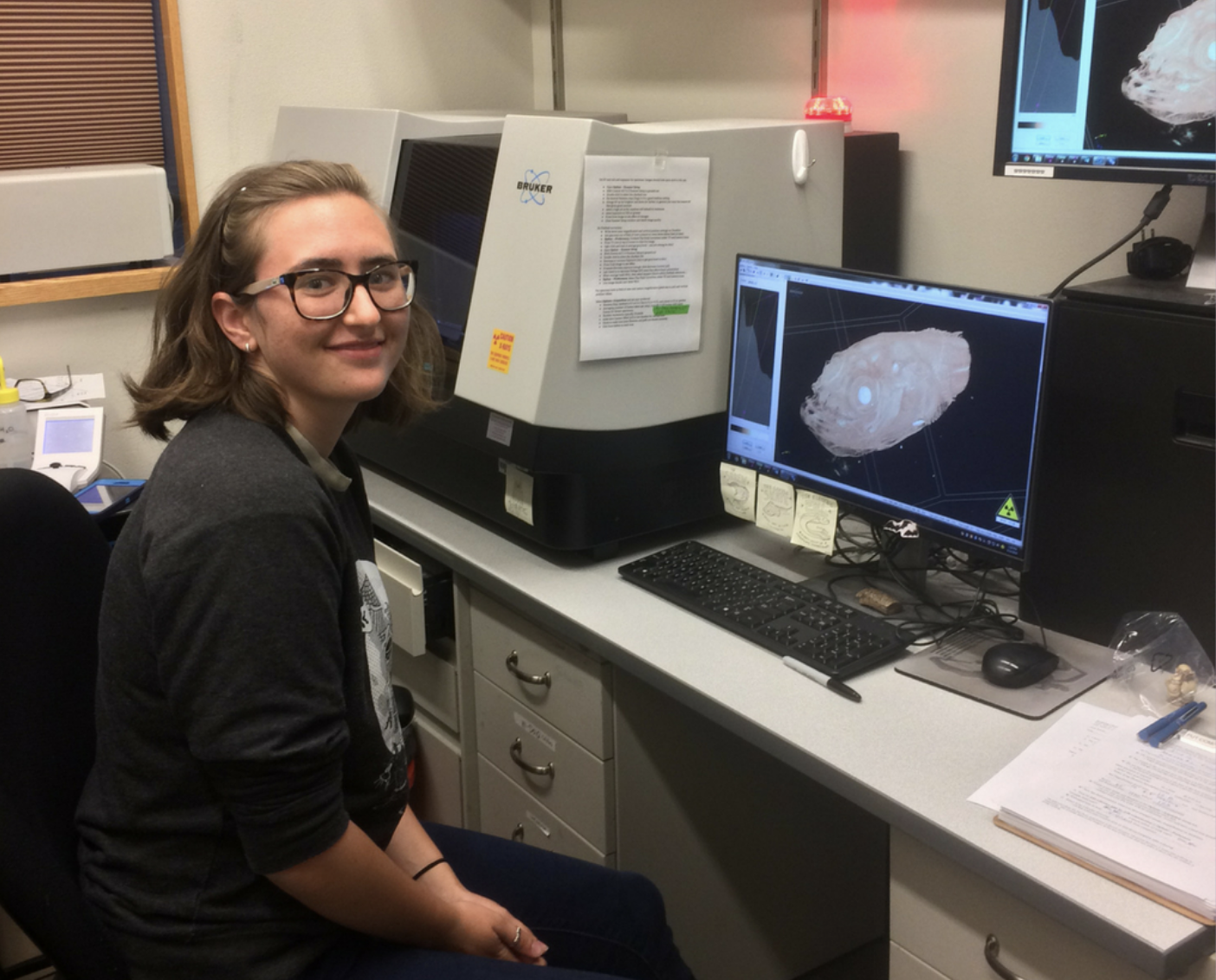
Morgan Stewart ’19 describes the past three months as her “summer with fish.” Stewart spent the summer working as a research assistant at the Friday Harbor Labs in Washington State’s San Juan Islands under Professor of Biology Adam Summers, who is widely known for his project “Scan All Fish.” Having begun in 2015, Summers is aiming to scan every species of fish using a computed tomography (CT) scanner, a non-destructive technology that creates a 3-D visual replica of the specimen using X-rays and a computer. He then uploads the images on a open-access journal, which allows scientists to view the fish’s skeleton, muscles, internal organs, and parasites.
This summer, Stewart used these scans to investigate damage on the scales of poachers—small, bottom-dwelling, cold-water marine fish within the Agonidae family. Specifically, Stewart worked with a fish called Agonopsis vulsa (Northern spearnose poacher), which she describes as small but heavily armored. “Their scales are basically armor plates,” says Stewart. “Imagine crocodile skin on a tiny fish—a large one is only 17 centimeters.”
Stewart’s work consisted of breaking the fish scales in order to differentiate between damaged and undamaged scales. She then used a 3D-printer to better understand the shape of their scales and examined their damage using Summers’ CT-scanned images. The research aims to use the damaged scales to develop a greater understanding of the fish’s life history.
“We can look at scale damage to give us context for their life habits. For example, if we find patterns that indicate wrestling, we will have found something entirely new that others haven’t been able to confirm.”
According to Stewart, Agonopsis vulsa have largely gone unstudied. “It’s not a glamorous fish, but it has a gorgeous natural armor. Even if this work doesn’t have direct societal implications at this moment, part of research is allowing things to develop value over time.”
In addition to learning about Agonopsis vulsa, Stewart gained invaluable experience in the day-to-day life of a working laboratory. “I gained a lot of scientific and lab literacy that extended beyond my classroom learning at Scripps. I learned about how scientists operate, how research labs work, and how to interact with peers on a professional level,” she says.
The internship also inspired Stewart to think more closely about her career path. She now plans to integrate her dual majors of art and biology into working in collections management for a natural history museum, the department that ensures the long-term safety and sustainability of collections.
“This summer I was able to supplement my liberal arts experience at Scripps with an internship in a narrow discipline. Both experiences have led me to where I am today and have given me ideas about what I want to pursue in the future,” she says.

